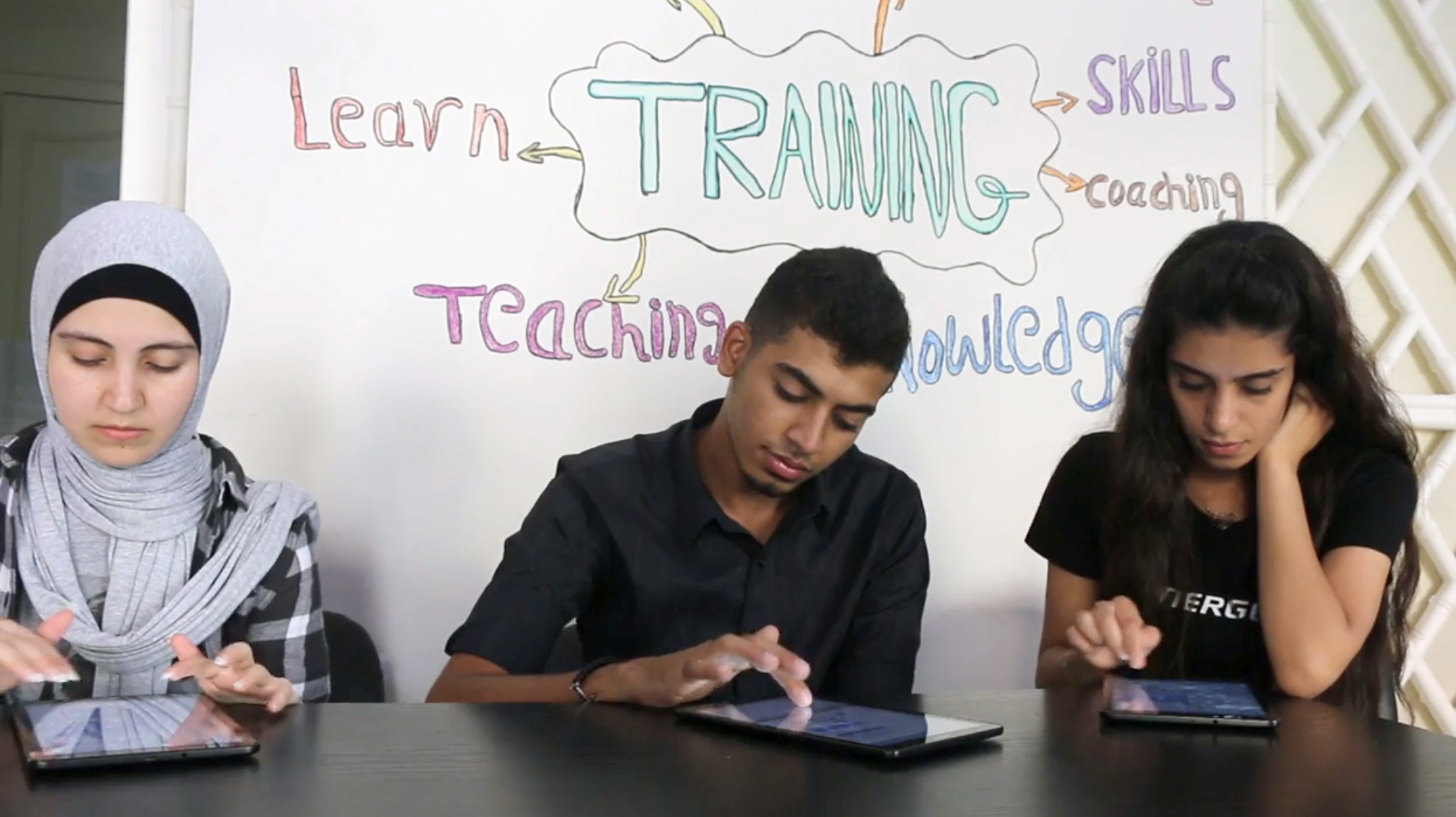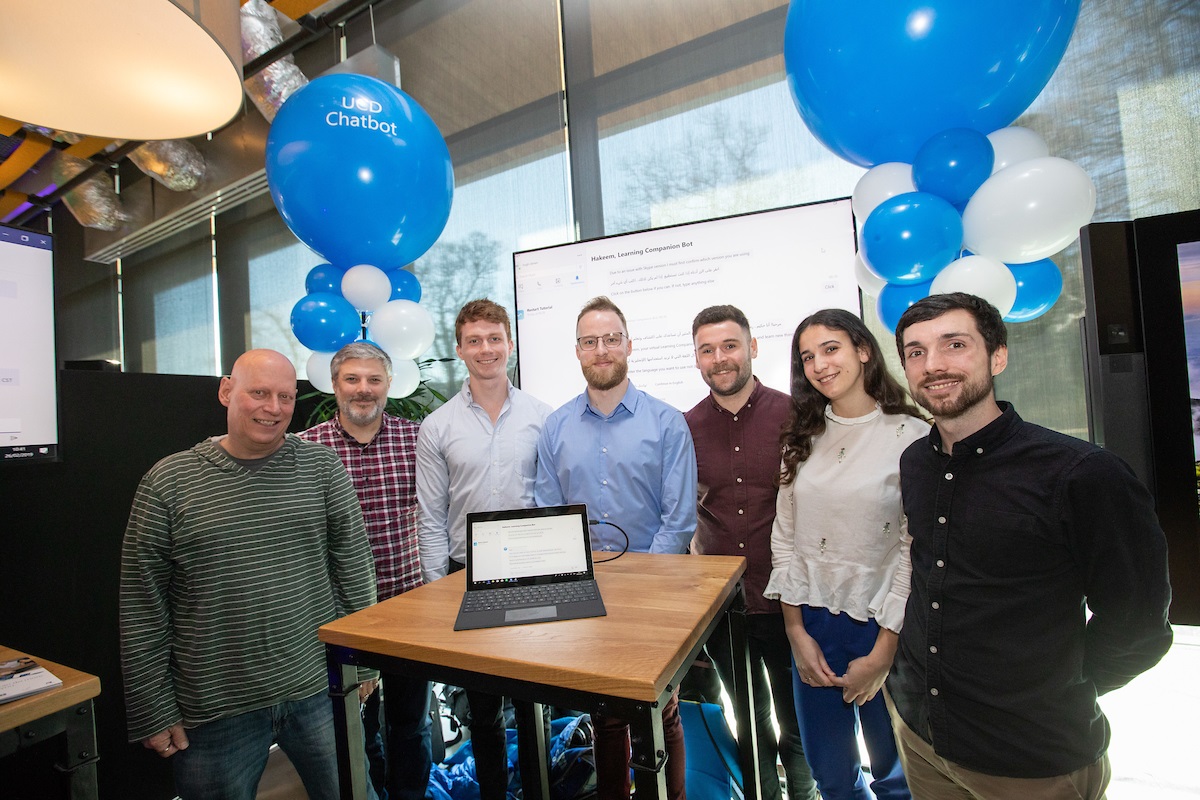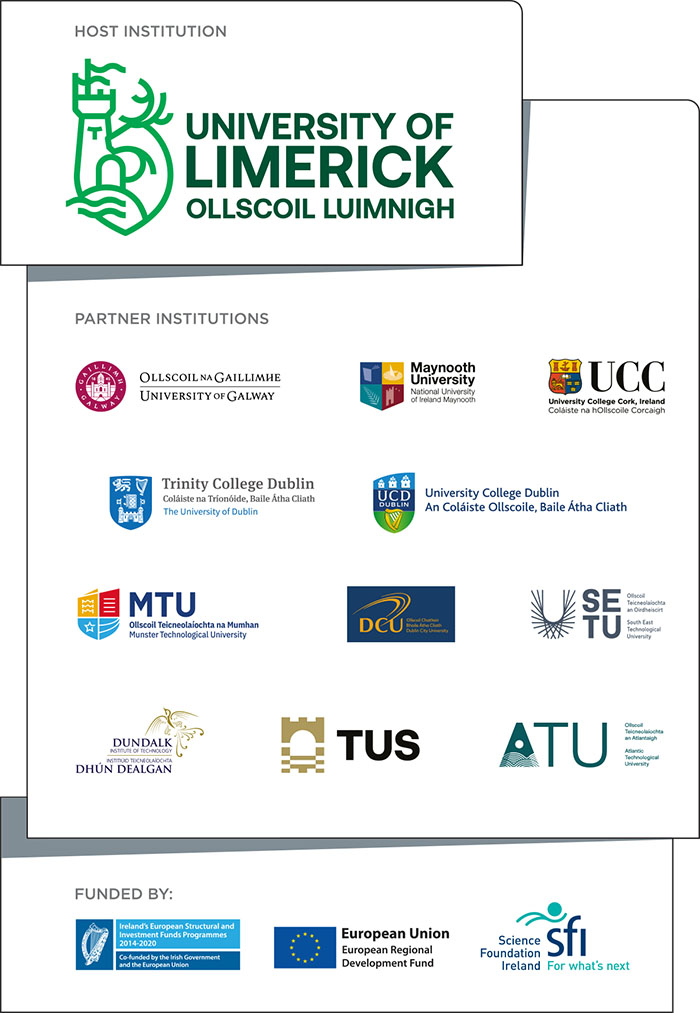AI for Good Project Shortlisted for US-Ireland Research Innovation Award
You are here
A project led by a Lero researcher at University College Dublin (UCD) using artificial intelligence (AI) technologies to help improve the lives of millions of young people, who have been displaced in areas of conflict around the world, has been shortlisted for a 2019 US-Ireland Research Innovation Award.

Conflict-affected youth in Lebanon interacting with and testing UCD-Lero-Microsoft chatbot in September 2018 (Photo credit: NRC)
The shortlisted organisations for the Awards were announced today at the American Chamber of Commerce Transatlantic Conference.
The US-Ireland Research Innovation Awards are a joint initiative of the American Chamber of Commerce and the Royal Irish Academy. Now in their fifth year, the awards recognise excellence in research innovation, creation and invention by an organisation, as a result of US Foreign Direct Investment (FDI) in Ireland.

Pictured (l-r) Ross Smith, Director Skype for Good at Microsoft, Dr Anthony Ventresque, Director of the UCD Complex Software Lab, UCD School of Computer Science and his research assistants Hugh O’Brien, Shane Bird, Emmet Tracey, Rosanna Hanly and Conor Lawlor. (Microsoft/UCD).
The project, a collaboration between UCD and Microsoft, together with NGOs, NetHope and the Norwegian Refugee Council, and LERO, the Science Foundation Ireland backed Irish Software Research Centre, has been shortlisted in the Higher Education Institute Research Centre or Institute based on the island of Ireland with links to the US corporate sector award category.
Millions of refugee youths in areas of conflict have had their lives hugely disrupted at a time they should be dedicating themselves to learning, growing and receiving an education. In addition millions have been forced to leave school and to work in difficult conditions to provide for their families.
The aim of this collaborative project, which has been ongoing for a number of years, is to develop AI-based ‘chatbots’ to provide opportunities for young refugees to access and avail of high-quality educational resources in their own languages.
Chatbot technology uses machine learning for translation and speech recognition and includes specific language attributes associated with individual refugee cohorts. Chatbots can understand different languages and can be used to intelligently assist young refugees in accessing high quality education.
In doing so chatbots can empower young displaced people to educate themselves, access work and contribute to their societies and communities in positive ways which is ground breaking.
Dr Anthony Ventresque, Director of the UCD Complex Software Lab at the UCD School of Computer Science is leading this project at the University.
Dr Anthony Ventresque said, “I am delighted that our innovate and collaborative project between UCD and Microsoft has been shortlisted for this prestigious Award. Our project goal is to provide a solution to address the labour skills and educational deficits that prohibits refugees, especially young refugees, from contributing to their communities and taking an active role in society.”
“AI technologies can have an incredible impact on how we tackle this issue and can empower young displaced people and our plan now is to roll-out the chatbot to refugees in Lebanon and Jordan later this year.”
Ross Smith, Director Skype for Good at Microsoft said, “UCD researchers and our team at Microsoft have spent several years working on this project, with a number of NGOs and non-profits, and I believe that over the last 12 months we have started to see tangible results. I look forward to seeing the societal benefits and impact that results from the roll-out of the chatbot to an increasing number of displaced youth in Lebanon and Jordan later this year. The power of AI for Good gives us hope for the future.”
Professor Orla Feely, UCD Vice-President for Research, Innovation and Impact said, “I would like to congratulate Dr Anthony Ventresque and his UCD team, together with his Microsoft research partners, on being shortlisted for a 2019 US-Ireland Research Innovation Award.”
Also shortlisted in the Higher Education Institute Research Centre or Institute based on the island of Ireland with links to the US corporate sector award category are; NUI Galway with Boston Scientific and the UNESCO Chair at the Institute of Technology, Tralee with IHRSA, Boston for UFIT.
The winners of the 2019 US-Ireland Research Innovation Awards will be announced at the American Chamber of Commerce Annual Dinner which will be held on May 17 in Dublin.
The full shortlist is available via https://www.ria.ie/news/grants-and-awards-us-ireland-research-innovation-awards/shortlist-announced-2019-us-ireland






